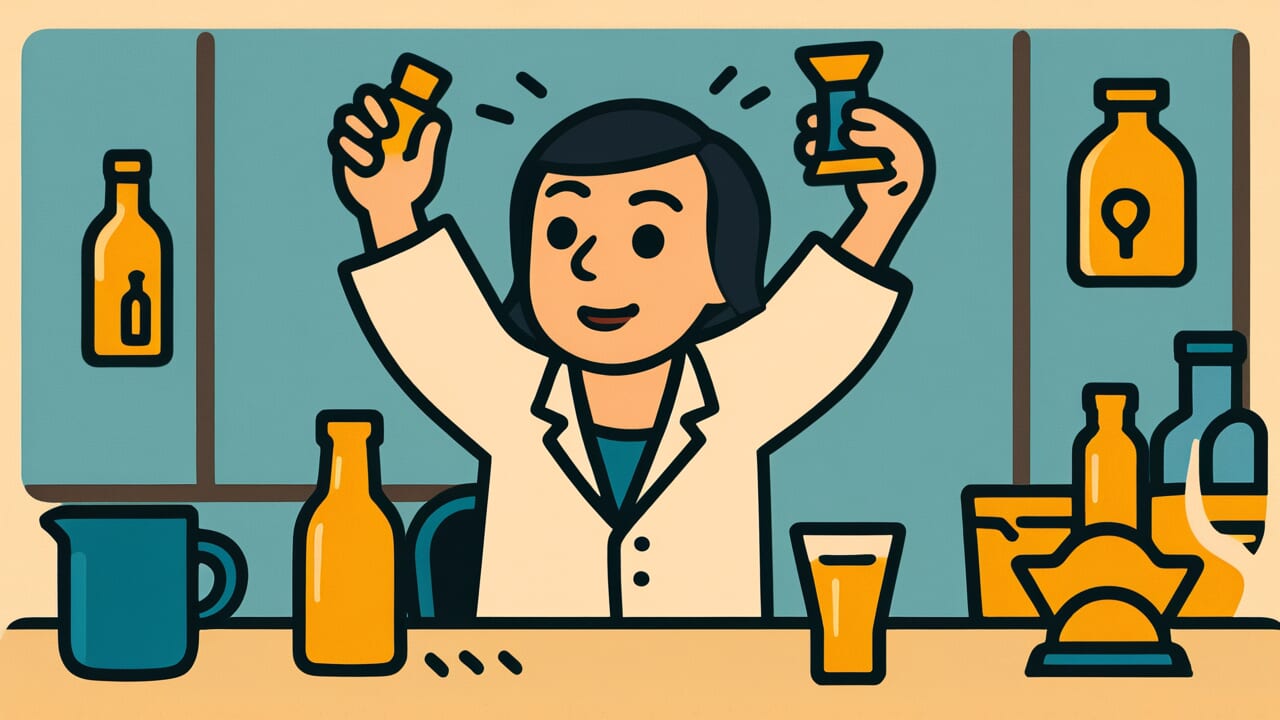How to Read “No one learns their lesson from alcohol and childbirth”
sake to san ni wa korita mono ga nai
Meaning of “No one learns their lesson from alcohol and childbirth”
This proverb describes a fundamental human trait. People forget the suffering from drinking mistakes and the intense pain of childbirth as time passes. Then they repeat the same experiences all over again.
No matter how firmly someone swears “never again,” the memory of pain fades. Eventually, they end up repeating the same mistakes or hardships.
People use this proverb when someone forgets past failures and is about to repeat them. You can use it as a warning to yourself. Or you might say it with a wry smile when watching someone else’s behavior.
Even today, we see this truth in action. People fail at diets repeatedly. They choose the same difficult path despite past suffering. This happens because humans have the ability to forget pain, which actually helps us move forward.
The proverb contains a positive understanding of human nature. Our power to forget pain is what allows us to keep going.
Origin and Etymology
No specific written source documents the exact origin of this proverb. However, people likely used it commonly during the Edo period. The structure shows keen observation of how human memory and desire interact.
“Alcohol” has been deeply rooted in Japanese culture since ancient times. After drinking too much, many people wake up miserable. They swear “never again” the next morning.
But as time passes, that suffering fades. Soon they return to drinking gatherings. This pattern has repeated across generations and centuries.
“Childbirth” refers to giving birth. In times before modern medicine, childbirth was a life-threatening ordeal. Women endured intense labor pains and thought “never again.”
Yet as time passed, they forgot that pain. They wished for another child. Our ancestors sharply understood this mysterious human characteristic.
By pairing two completely different experiences, the proverb expresses a universal human trait. It shows our “power to forget pain” in a remarkably skillful way.
Interesting Facts
Medical science shows that forgetting childbirth pain isn’t just vague memory. Brain hormones play a key role. After birth, the body releases oxytocin, a happiness hormone.
This hormone softens painful memories. Humanity has thrived because of this “forgetting mechanism.” Without it, we might not have survived as a species.
Alcohol also affects how the brain forms memories. Science has proven this connection. Drinking makes memories of failures fuzzy because alcohol suppresses the hippocampus.
Our ancestors lacked scientific knowledge. Yet through experience alone, they understood this truth perfectly.
Usage Examples
- He’s suffering from another hangover, but next week it’ll be “No one learns their lesson from alcohol and childbirth” again—he’ll join the drinking party
- She went through such pain, yet wants a third child—truly “No one learns their lesson from alcohol and childbirth”
Universal Wisdom
This proverb reveals the “power of forgetting” that humans possess. This ability is both mysterious and precious. What would happen if we remembered pain at full intensity forever?
One failure would prevent us from trying again. One painful experience would stop us from nurturing new life. We would become paralyzed by fear.
Humans can move forward because we forget. If we remembered past pain perfectly, fear would bind us completely. Because we forget, we can fall in love again, try again, and hope again.
This proverb contains deep insight into human nature. It also holds a kind of warm resignation. The phrase “no one learns their lesson” isn’t just criticism.
It expresses affection for humans as they are. Would we truly be happy if we learned perfectly and never failed again? Perhaps not.
Our ancestors understood this truth. Humans are creatures who forget. That’s exactly why we can stand up again and again. This “power to forget” might be the driving force behind humanity’s survival through hardship across generations.
When AI Hears This
The human brain has built-in asymmetry. Painful memories fade, but pleasurable memories remain. This happens because the hippocampus processes negative and positive experiences differently.
Let’s look at specifics. Labor pain reaches the highest level on pain scales. But the moment the baby is born, the brain floods with oxytocin and endorphins.
These pleasure chemicals strongly stimulate the nucleus accumbens, the reward center. They mark that memory for long-term storage. Meanwhile, the amygdala processes labor pain memories.
These signals naturally weaken over time. Research shows that pain memory vividness drops about 50 percent within months after childbirth.
Alcohol works the same way. Hangover misery gets processed as temporary unpleasant memory. But the euphoria while drinking and fun times with friends get firmly stored with dopamine release.
The brain follows a survival strategy: “forget pain, remember rewards.” Without this mechanism, humanity might not have had second children. Our species’ survival could have been at risk.
Not learning the lesson isn’t weak willpower. It’s the brain’s fundamental design philosophy.
Lessons for Today
This proverb teaches modern people to accept human imperfection. We are creatures who repeat the same mistakes. Don’t blame yourself for this. Start by understanding that’s simply how we are.
Rather than pursuing perfection and condemning yourself constantly, learn to forgive yourself for repeated failures. You fail at diets multiple times, but you can start again.
You get hurt in relationships, but you can trust people again. That’s not weakness. It’s the strength to move forward.
This wisdom also helps with prevention. If you know you’ll forget again, you can keep records. You can create systems to prevent the same mistakes.
Because humans forget, tools to help us remember have real value.
Most importantly, you can watch others repeat mistakes with warmth. That’s just how humans are. This understanding should lighten your heart a little.



Comments